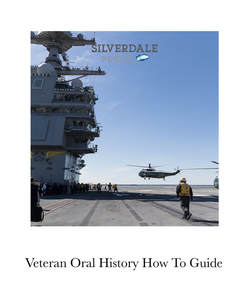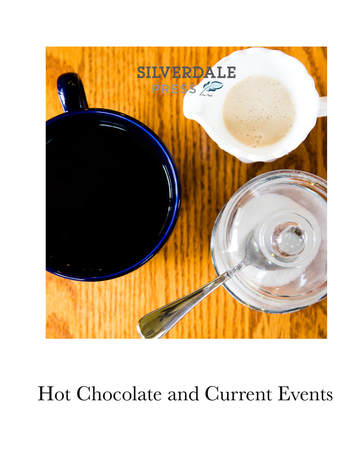 Find it hard to get teens and tweens to talk? Get the conversation going with Hot Chocolate and Current Events! Reading the newspaper is a habit of great leaders and thinkers. Won’t you join us for a year of family-friendly and fascinating news articles? This week, add a box of donuts for an extra incentive. We’re talking business and marketing in the news! Do you know which storied purveyor of fried dough glazed with sugar is changing its name? Get the article: https://www.theguardian.com/business/2018/sep/25/dunkin-donuts-name-rebrand-new-england-boston-reaction Plot these points on a map: -Quincy, Massachusetts -New England -Boston, Massachusetts Learn these vocabulary words: superfluous—unnecessary, especially through being more than enough sacrilege—misuse of what is regarded as sacred pigeonholed—assign to a restrictive category or class Discuss the following questions: Where does the story take place? What is the main topic, problem, or issue? What is your reaction to this article? Do you think that the second word in the brand’s name is superfluous? Why is it sacrilege for New Englanders to say they don’t like “Dunks”? Do you think it’s a good idea for established brands to change their names? Why do you think this company decided to change its name? Do you think the company is being pigeonholed as a donut place? Do you think the name change will help Dunkin’ be more successful?
0 Comments
 It’s so important to record the memories of friends and loved ones, especially those who have served our country in the military. In this newsletter, we’ll teach you how to do your own veterans oral history, so that you can preserve for all time the experiences of those brave men and women. What is oral history? Oral history is the collection and study of historical information using recordings of interviews with people having personal knowledge of past events. With a veteran oral history, your goal is to interview and record a veteran about his or her experiences in the military. With the 100th anniversary of the armistice right around the corner, this would be a really neat homeschool project, not to mention a priceless keepsake. Step 1: Prepare -Decide whom you will interview -Gather recording equipment—maybe an app for your phone, a digital camera, or a simple audio recorder -Ask the veteran permission, and set up a time and quiet location -Test the sound/recording equipment Step 2: Conduct the Interview Use these questions as a guide: -What is your name and birth date? -Where were you born? -Did you have any family who served in the military before you? -What did you do before you entered the military? -In which branch of the military did you serve? -How long were you in the military, from when until when? -In which branch of the military did you serve? -At what rank did you start out, and at what rank did you leave? -Did you enlist in the military, or were you drafted? -If you were enlisted, what made you want to join? -If you were drafted, how did you feel upon being drafted? -How did your family feel about you going into the military? -What were your first few days and weeks like? -Discuss your training/boot camp. What did you learn? What kind of physical training did you have? -Who were your instructions, and what were they like? -What were your reactions to the physical training, schedule, accommodations, and food? -How often could you talk to friends and family? -Where did you serve? At home or abroad? -Did you serve during a war or conflict or during a time of peace? -What were your responsibilities? -Did you witness any combat action? -Were you in any famous battles? -Did you get injured? -Did you see death and destruction; if so, how did that make you feel? -What kind of food did you eat, and what were your living and sleeping quarters like? -Did you get time off, and what did you do in your free time? -Who were your friends in the military, and what were they like? -How did you keep in touch with friends and family back home? -When did you return home? Describe what it was like to come back. -Why did you leave the military? -Did you keep in touch with your military friends? -What have you done with your life since leaving the military? -Do you think about your time in the service often? -Would you recommend that a young person today join (the veteran’s branch of) the military? -What were the most valuable skills and lessons you took away from your military service? -How did your service affect the trajectory of your life? -Is there anything else you want us to know about that we didn’t cover? Step 3: Preserve and Share -Be sure to back up your interview so that it is not lost -Transcribe the interview if you have time, or have it transcribed -Get permission, then share with family or friends who would be interested in having these memories I hope you have found these suggestions helpful. Looking for more Veterans Day resources? Check out our Veterans Day Unit Study!  Are you studying current events with us? Studying current events, especially other parts of the globe, is a great way to give your kids a heart for the world. They can’t have a heart for the world if they don’t know what’s going on beyond their own four walls. Sign up for our newsletter to get currents events articles and discussion questions delivered to your inbox each week. It's free! This week, we’re talking about health in the news: Do you know which African country is experiencing a cholera outbreak?
2. Map points: Zimbabwe 3. Vocabulary: cholera: an infectious and often fatal bacterial disease of the small intestine, typically contracted from infected water supplies and causing severe vomiting and diarrhea. autocratic: relating to a ruler who has absolute power borehole: a deep, narrow hole made in the ground, especially to locate water or oil. 4. Questions to discuss Where does the story take place? What is the main topic, problem, or issue? What is your reaction to this article? Why do you think the cholera outbreaking is happening in this particular country? How can the cholera outbreak be stopped? Should the world community respond? If so, how? If not, why not? 
At Silverdale Press, we want to equip parents to teach writing. We’ve created a FREE, 105-page PDF download to help you teach persuasive writing. This download was made available to our newsletter subscribers. Not on our list? Click here to subscribe. Children learn to write by writing. There is no better teacher than regular, weekly practice. The more children write, the better writers they will become. Our FREE download gives you a prompt for every week of the year. What could be easier than that?
With this free resource, we take the burden off of parents. The job of parents is to sit back and encourage. Your child will be engaged, and your whole family will be enriched. Interesting discussions are sure to ensue! For more in-depth instruction, check out our homeschool writing curriculum: Persuasive Writing and Classical Rhetoric: Practicing the Habits of Great Writers.  Reading the newspaper aloud in your homeschool increases vocabulary and enhances your home’s print climate—leading to success in school and life. Join us each week for Hot Chocolate and Current Events, our effort to enrich your homeschool family life. This week’s article is about the military and global affairs: In which country are young men binging on pizzas and burgers to try to avoid military service? Hop on over to our blog for the article, vocabulary words, map points, and discussion questions. 1. Download this article to read aloud with your family: https://www.theguardian.com/world/2018/sep/13/give-pizza-a-chance-south-koreans-pa-weight-to-thwart-conscription 2. Check out these vocabulary words: conscription—mandatory enlistment for service to the state, especially in the armed forces binge—to indulge in an activity, especially eating, to excess civilian—relating to a person not in the armed forces or police 3. Plot this point on a map: South Korea 4. Discuss the following questions: Where does the story take place? What is the main topic or issue? What is your reaction to this article? What do you think about South Korea’s mandatory conscription law? Should pop stars be exempt from military service? |
Silverdale PressCheck out our About Page to learn more about us! Categories |

 RSS Feed
RSS Feed